Search
Remove Ads
Advertisement
Summary 
Loading AI-generated summary based on World History Encyclopedia articles ...
Search Results

Definition
Edmund Burke
Edmund Burke (1729-1797) was an Anglo-Irish statesman and political thinker. His most famous work is Reflections on the Revolution in France a critique of the social and political turmoil in that country in the final decade of the 18th century...

Definition
J. E. B. Stuart - The Cavalier of the Confederacy
James Ewell Brown Stuart (1833-1864), better known by his initials as J. E. B. Stuart, was a Confederate cavalry general during the American Civil War (1861-1865). Known for his flashy style of dressing and his daring raids behind Union lines...

Article
Clarissa Davis & Woman Escaping in a Box - No Happy Slaves and Two Great Escapes
Slaveholders in the United States frequently claimed that Blacks were 'happy' to be slaves and could, in no way, function as free people as they would find freedom 'burdensome' – a claim fully articulated by slavery apologist T. R. Dew's...
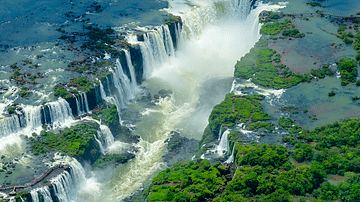
Article
The Idea of the Sublime in the Enlightenment
During the European Enlightenment, a concept was developed in philosophy and aesthetics called the sublime. In the arts, literature, and the works of intellectuals, the sublime referred to the awe-inspiring capacity of nature and beauty...
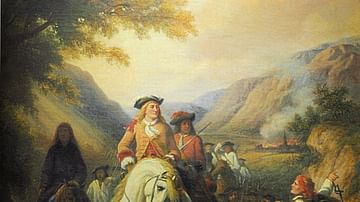
Article
The War of the Camisards in the Cévennes
The War of the Camisards (1702-1705) was launched by Protestant Huguenots in the Cévennes region of southern France. After the Revocation of the Edict of Nantes in 1685 by Louis XIV of France (r. 1643-1715), Huguenots worshipped illegally...
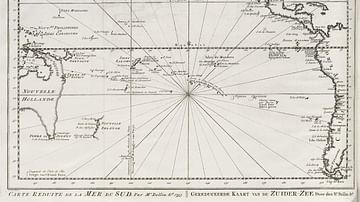
Image
Map Showing Davis Island Below the Tropic of Capricorn
Ile Davis (Davis Island or Davis Land) was an island said to have been discovered in 1687 near Rapa Nui (Easter Island) by the English buccaneer Edward Davis (fl. c. 1680–1688) skipper of the Bachelor’s Delight. It is located below the Tropic...
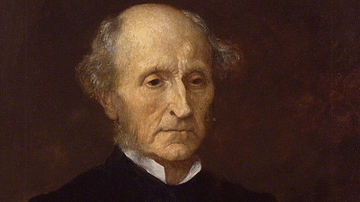
Definition
John Stuart Mill
John Stuart Mill (1806-1873) was a highly influential English philosopher of the Victorian Era. His writings were influenced by the Enlightenment thinkers and German Romanticism. Besides philosophical works, he wrote on mathematics, language...
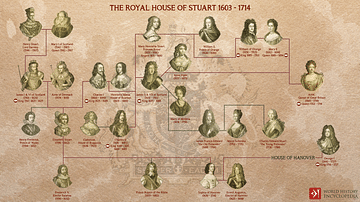
Collection
The Royal House of Stuart
The Stuart royal line (originally spelt Stewart) was founded in Scotland when Robert II took the throne in 1371. James VI of Scotland (in England known as James I) then unified the Scottish and English crowns following the death of Elizabeth...
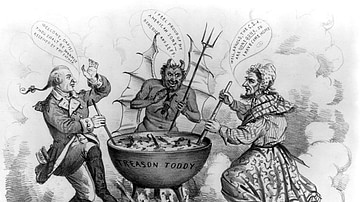
Image
Political Cartoon Depicting Benedict Arnold and Jefferson Davis in Hell
A Proper Family Reunion, American political cartoon showing Satan and Benedict Arnold welcoming Jefferson Davis to Hell. Arnold and Davis were considered two of the most notorious traitors in US history; Arnold, a Patriot general in the American...
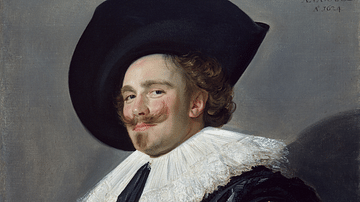
Image
The Laughing Cavalier
A 1624 oil-on-canvas portrait by Frans Hals (c. 1582-1666) of an unknown man. The painting is widely known as "The Laughing Cavalier" because of his suggestion of a smile. Hals was known for capturing his subjects with a relaxed pose and...